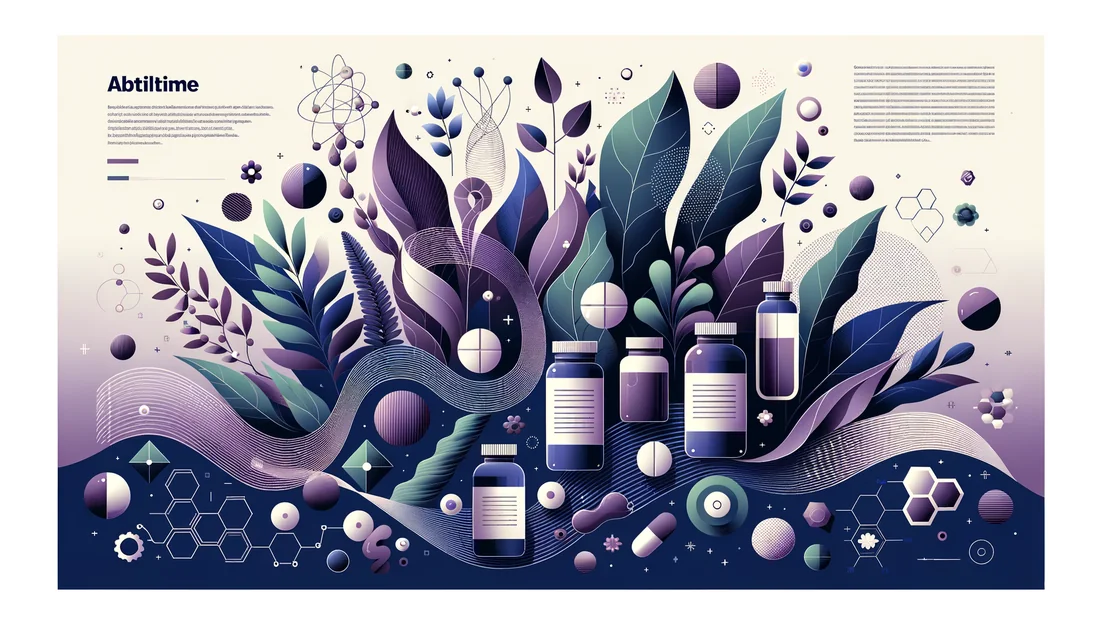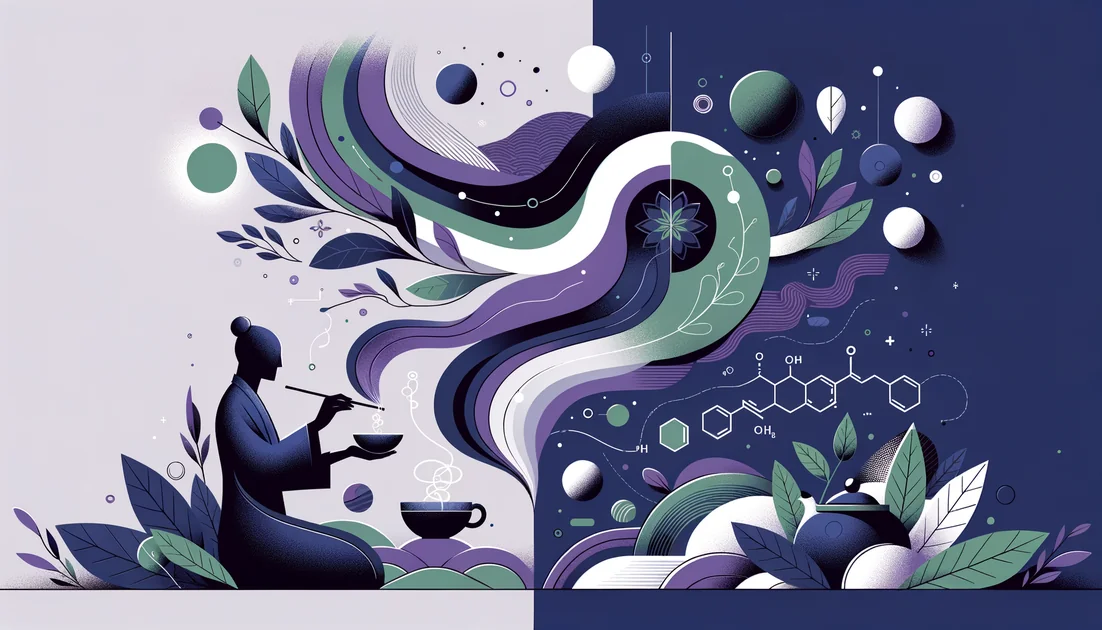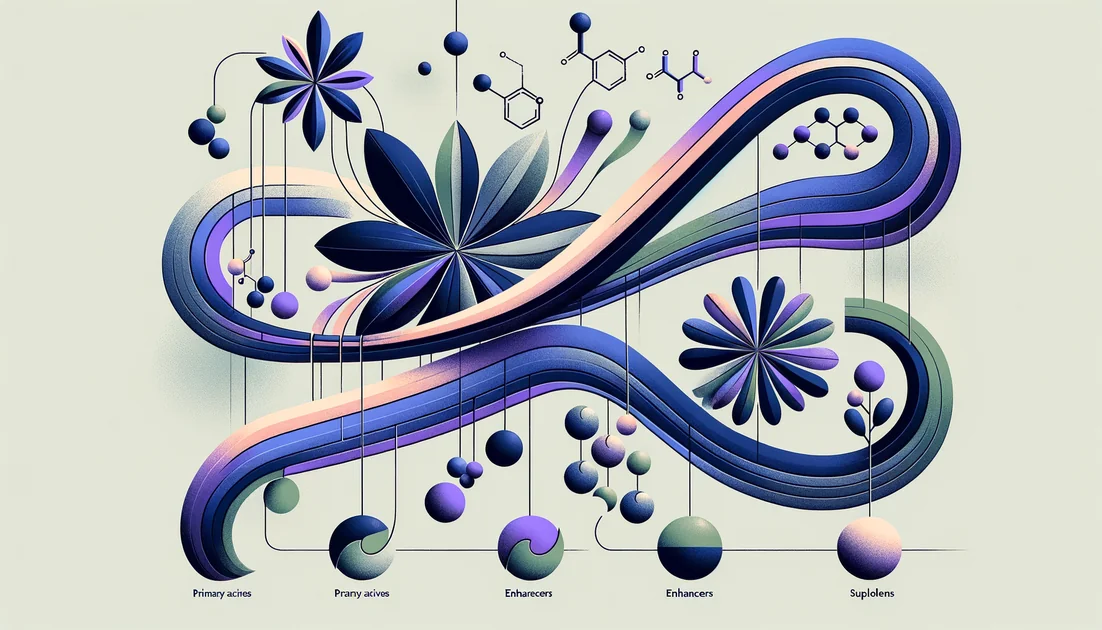
Yellow Leader, Quiet Revolutions: How Astragalus Stepped From Kitchen Broth Into Modern Clinics
On a winter stove, a pale-yellow root simmers in soup. In hospital labs, the same plant is weighed to the gram for a year-long kidney trial. How did Huangqi—"Yellow Leader"—travel from family pots to randomized studies?
- Evidence
- Promising
- Immediate Effect
- No → 4-12 weeks
- Wears Off
- Gradually over weeks after stopping
The root with a title
In Traditional Chinese Medicine, Astragalus earned a regal nickname: Huangqi, "Yellow Leader," a tonic said to fortify the body's defenses. Classical texts—from the Han dynasty's materia medica to Ming-era compendia—placed it among the foremost restoratives, folded into stockpots and formulas to "secure the exterior," the traditional way of saying: help you hold your ground. Today, pharmacognosy labs confirm the root is loaded with isoflavones, saponins (astragalosides), and complex polysaccharides—the likely characters behind its centuries of use. [2]
When myth meets metrics
Modern agencies have pressed the pause button on hype. As the U.S. National Center for Complementary and Integrative Health puts it, "There is not sufficient reliable scientific evidence to know whether astragalus is useful for any health condition." [1] Still, a drift of studies—some rigorous, many imperfect—suggests places where this old root may matter.
A kidney trial that quietly moved the needle
Between 2018 and 2022, clinicians in Hong Kong randomized 118 people with type 2 diabetes and chronic kidney disease to receive either standard care or add-on oral astragalus granules (the equivalent of 15 g raw herb daily) for 48 weeks. The astragalus group's kidney function declined more slowly—an estimated 4.6 mL/min/1.73 m² per year difference in eGFR slope—and their systolic blood pressure ended 7.9 mmHg lower; albuminuria didn't significantly budge. It wasn't a miracle, but it was measurable, and adverse events were similar between groups. [3] Earlier meta-analyses—dominated by Chinese trials and often low in methodological quality—had hinted at reduced protein leakage in urine and small improvements in creatinine with astragalus (oral or injectable). The new randomized result gives the story sharper edges. [4][11]
"Add-on astragalus.. further stabilized kidney function on top of standard care." —Trial investigators, Phytomedicine, 2024. [3]
Fatigue in the cancer ward
Another thread runs through oncology clinics, where a purified astragalus polysaccharide injection (PG2) has been tested as supportive care. In phase II double-blind work, patients with advanced cancers reported meaningful, sustained drops in crushing fatigue over 4–8 weeks, without major toxicity. Later multicenter studies (including phase IV) associated PG2 with improvements in fatigue scores and quality-of-life domains; not a cure for cancer, but a gentler day-to-day. These studies often come from Taiwan, where PG2 has regulatory approval for cancer-related fatigue; outside those settings, it remains investigational. [6][7]
The telomere paradox
Then there's the headline-grabber: telomeres. A company-funded, year-long placebo-controlled trial in older adults reported that a tiny astragalus-derived molecule (TA-65) lengthened telomeres at a low dose. That's striking—telomeres are like shoelace tips for chromosomes, fraying with age. But the study's conflicts of interest and mixed dose response, plus uneven results in other models, keep this in the "intriguing, not definitive" column. Astragalus the root is not the same as a purified telomerase-activating small molecule. [5]
What researchers think is happening
If you picture the immune system as a neighborhood watch, astragalus doesn't simply " up the volume"—it seems to tutor the patrol. Polysaccharides may nudge antibody production and adjust inflammatory signals; small clinical studies and meta-analyses of human immune markers suggest increased responses and lower inflammatory proteins, but they are heterogeneous and often small. [1] In allergic rhinitis, a six-week randomized trial of an astragalus-containing supplement reduced runny nose but not all symptoms—again, a hint, not a slam-dunk. [8]
Tradition's caution, modern nuance
TCM doctors long taught astragalus as a prevention herb, added to soups in well seasons, and avoided during acute fevers, when the goal is to "let the sweat out" rather than fortify the gates. That caution echoes today for different reasons: astragalus may counteract drugs that deliberately quiet the immune system (after transplants or in autoimmune disease). NCCIH advises people with autoimmune conditions or on immunosuppressants to avoid it unless supervised. [1]
A glimpse of the near future
Beyond kidneys and fatigue, new lab and translational work explores astragalus constituents as precision tools. At the University of Hong Kong, scientists recently reported that calycosin—an isoflavone from astragalus—can rein in a subset of immune cells (T follicular helper cells) implicated in autoimmunity; pairing calycosin with methotrexate in models appeared to enhance efficacy while using lower drug doses. As one investigator summarized, combining calycosin with methotrexate may "reduce drug toxicity while enhancing therapeutic effectiveness." It's early-stage, but it reframes astragalus not as a blunt booster, but a potential scalpel. [9]
How people actually use it
In East Asian kitchens, dried root slices (think pale tongue depressors) are simmered with stock, then discarded; this is culinary-strength, slow and steady. [2]
In clinics, studies have used granules standardized to raw-root equivalents (e.g., 15 g/day in the kidney trial) or purified injections like PG2 in oncology settings—not over-the-counter capsules. [3][6]
Popular wellness guidance still points to tea: as integrative physician Andrew Weil puts it, a "steamy pot of astragalus tea" to "boost your body's defenses." Even he adds a caveat about immunosuppressive drugs. [10]
If you're curious, talk with your clinician—especially if you have kidney disease, cancer, autoimmune conditions, or take immunosuppressants. The evidence is promising in specific niches (kidney function stabilization; cancer-related fatigue with injectable polysaccharides), mixed for allergies, and not yet definitive for general "immune boosting" or longevity.
The quiet lesson of a yellow root
Astragalus's modern story isn't a thunderclap; it's the steady simmer of careful trials meeting kitchen wisdom. The "Yellow Leader" may not command every front, but where it's been tested best, it behaves less like a megaphone and more like a coach—subtle, situational, and—when chosen well—useful. [3][4][6]
[1]: NCCIH, Astragalus: Usefulness and Safety (updated May 2025).
[2]: Frontiers in Pharmacology review of Astragalus: botany, traditional uses, chemistry (2023).
[3]: Chan et al., Phytomedicine 2024: randomized, assessor-blind astragalus add-on in diabetic CKD.
[4]: Meta-analyses in diabetic kidney disease (2019) and broader CKD (2014), low-quality but directionally positive.
[5]: Rejuvenation Research 2016, TA-65 telomere trial; industry conflicts disclosed.
[6]: PG2 (astragalus polysaccharide) trials for cancer-related fatigue, phase II and multicenter phase IV reports.
[7]: Additional oncology supportive-care analyses/meta-analyses with astragalus-containing regimens.
[8]: Phytotherapy Research 2010, allergic rhinitis RCT (runny nose signal only).
[9]: HKU press release (2025) on calycosin + methotrexate synergy in autoimmune models.
[10]: Andrew Weil, M.D., astragalus tea guidance (site pages).
Key takeaways
- •Astragalus (Huangqi) is rich in isoflavones, saponins (astragalosides), and polysaccharides—compounds thought to drive its gentle immune and resilience effects.
- •Modern evidence is measured: add-on oral astragalus slowed eGFR decline over 48 weeks in diabetic CKD; meta-analyses signal reduced proteinuria/creatinine, though study quality is low.
- •An injectable astragalus polysaccharide (PG2) has improved cancer-related fatigue and quality-of-life in randomized settings.
- •Practical dosing seen in trials: traditional granules approximating 15 g/day raw root for CKD; culinary use relies on long-simmered slices discarded before serving—choose third-party tested supplements and clinician guidance.
- •Timing ethos: build the "fence" over weeks; pause if you develop a fever or acute illness.
- •Cautions: avoid with autoimmune conditions or immunosuppressants (e.g., post-transplant) without specialist approval; monitor blood pressure if on antihypertensives.
You might also like
Explore more of our evidence-led investigations, comparisons, and guides across every article style.

Kirkman (Kirkman®/Kirkman Laboratories)
Kirkman: Testing powerhouse with a checkered past—and a noticeable transparency upgrade

Alpha-GPC (choline alphoscerate) vs CDP-Choline (Citicoline)
For daily focus and memory, pick Citicoline (250–500 mg/day). For a one-off workout power boost, Alpha-GPC (≈600 mg pre-session) has limited acute data—but weigh a cohort signal of higher long-term stroke risk if used chronically, especially in older adults.


L-Theanine
Picture a Zen monk whisking a bowl of tea at dawn. The ritual looks serene, yet what it delivers is not sleepiness—it's calm alertness, the paradox many of us crave in a noisy world. Scientists went hunting for the molecule behind that feeling and found L-theanine, tea's quiet signature.

Memory Stack With Real Clinical Data
Dual-core, theoretical synergy: both work on their own; together looks additive with plausible complementarity, but no direct human A+B head-to-head proof yet.

Tocotrienols
The stealthier cousins of vitamin E—built with springy tails that move differently in cell membranes and behave differently in your body.


